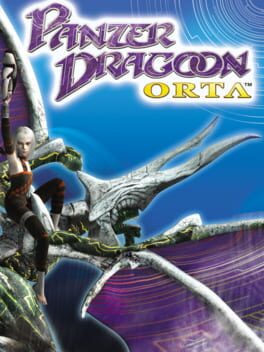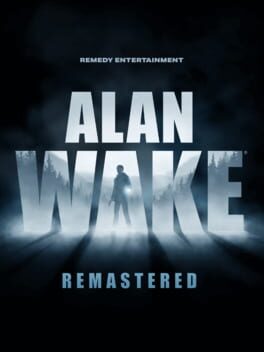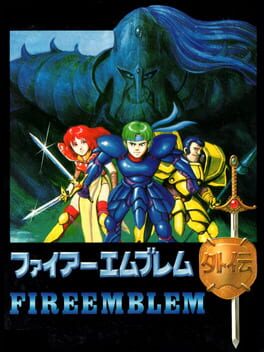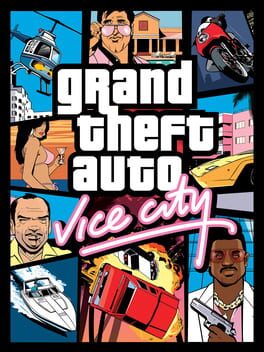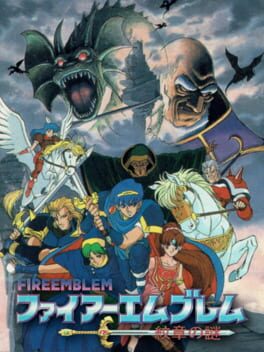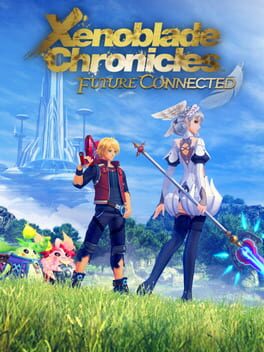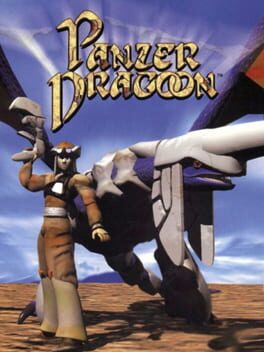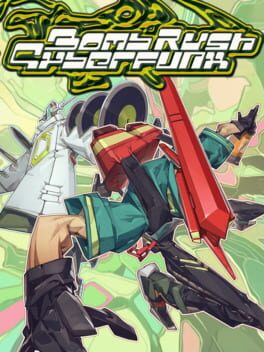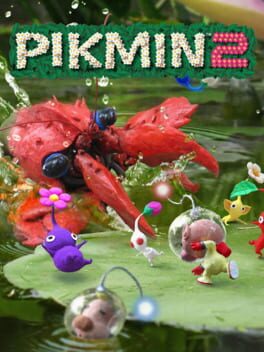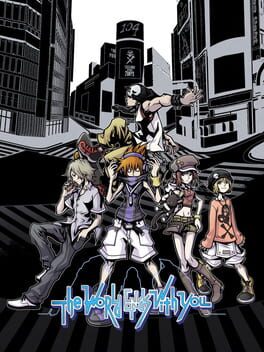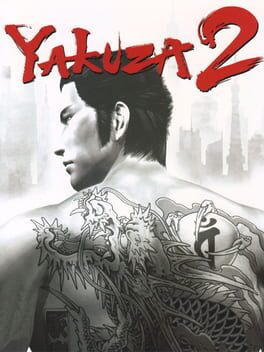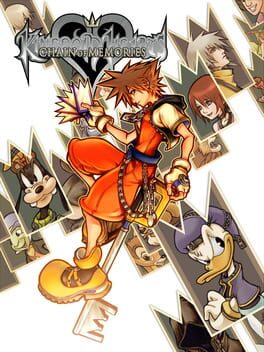dalt
BACKER
2002
i technically didn't finish bc my xbox emulator will no longer load my save for this game for whatever reason but wow i found this really disappointing.
following up on saga's ending is a fool's errand by nature, but the way they do it feels like it just totally spits on what that game was trying to say, and it gives me a terrible taste in my mouth. going from a game that is all about how history shouldn't rule us, a game that provides a very definitive and satisfying end, and just... resetting the world to be even worse than when we last saw it is so uninspired and lazy. it's not even worse in a way that's interesting. what was the point of anything i did in saga if this is how the world is supposed to turn out? i can appreciate that they tried at all here, because the easy thing to do would have been to just make a reboot or a prequel or even just ignore the story entirely, but the story here doesn't justify it's own existence and takes up far more time than the story in the original 2 rail shooter games.
the soundtrack isn't anything special compared to the saturn trilogy, and by default the sound effects are about 3 times as loud as the music, so i think they might have been aware of this, lmao. on the subject of atmosphere, this game's environments are very lush and detailed, but feel lacking in art design compared to the saturn trilogy. orta feels like it's focus is more on providing the audience with as much stuff to look at as possible, so these environments are extremely dense and lifelike, but don't feel as though they have the melancholic tone that i loved so much in zwei and saga especially. the lack of pastel tones in favor of a lot of browns is especially noticeable, to me. it's a shame because the concept art for this game is wonderful, especially all of the art of orta's design, but it doesn't translate in-game.
to me, PD's appeal as a franchise is heavily rooted in it's lore and atmosphere, so we're already not off to a great start, but the real issue to me with orta is the gameplay. first off, orta is a very, very hard game. i'd say i'm an average level video game player, and i did fine in PD1 and 2, but orta outright kicked my ass, and not in a way that made me want to keep coming back. as i mentioned earlier, orta feels as though it's designed to overwhelm the player with visual noise, which leads to a lot of points when i lost health to things i couldn't even identify, or boss mechanics that I still don't really know how to counter. i could not fucking tell you what the second phase of the episode 8 boss actually does, to this day, man. bosses also feel like they had at least twice as much health than what was normal in the previous games, even mid-bosses for some reason. normal mode here feels more on par with the hard modes in previous panzer dragoons, whereas easy is maybe the easiest game in the franchise apart from saga, solely because you sponge hits easier. an actual middle ground would be greatly preferable to what we have here. the big issue with orta's gameplay, though, is that it's new mechanics feel like they crush the game and make the weaknesses of this genre more apparent than ever before. orta introduces two new mechanics, gliding/braking and transforming your dragon. both of these mechanics are clearly inspired by saga's battle system, which is a cute idea and feels like it should be the natural evolution of panzer dragoon's gameplay, but to me it doesn't feel that they work in tandem. gliding and braking is used to imitate saga's quadrant-based positioning system in boss fights, but these boss fights don't allow you to freely maneuver around the quadrants, instead making some quadrants only available through braking and some only available through gliding. you also can ONLY move to a quadrant by doing these moves, and the energetic nature of the bosses means that you're occasionally blocked off from moving at all, leading to the player feeling trapped and crushed. this is made worse by the fact that the dragon transformation only has glide/brake bars on two of the three dragons, and you cannot freely cycle through transformations, you have to go in a set order. the heavy dragon is the dragon the player is encouraged to use against bosses for dps, and it's also the dragon that cannot glide or brake at all. the glide dragon is much more maneuverable, but does very little damage, cannot lock on, and is recommended to use for the purpose of defense. if you were switching between just these forms, i could see the boss fights being an engaging mix of defensive maneuvering and taking advantage of burst windows, but there's also the normal dragon, which can do a little bit of everything, just not as well as either of the other two. this means you're generally going through at least 2 button presses to get where you're wanting to be in boss fights, and switching on the fly tends to feel clunky and unrefined. all of these limitations imposed on the way the game is played, in addition to the extremely chaotic sensory-overload level design, makes orta feel more blatantly on-rails than either of the previous games did. i found myself struggling against the game very often, which is never a feeling you want the player to have in a franchise that had previously sold itself on the exhilarating feeling of being free in flight. it's a real shame, because the game shows off the promise a true sequel to zwei has in it's 5th level, but it never realizes that promise.
there are two good games here, but those games don't want to play nice with each other.
following up on saga's ending is a fool's errand by nature, but the way they do it feels like it just totally spits on what that game was trying to say, and it gives me a terrible taste in my mouth. going from a game that is all about how history shouldn't rule us, a game that provides a very definitive and satisfying end, and just... resetting the world to be even worse than when we last saw it is so uninspired and lazy. it's not even worse in a way that's interesting. what was the point of anything i did in saga if this is how the world is supposed to turn out? i can appreciate that they tried at all here, because the easy thing to do would have been to just make a reboot or a prequel or even just ignore the story entirely, but the story here doesn't justify it's own existence and takes up far more time than the story in the original 2 rail shooter games.
the soundtrack isn't anything special compared to the saturn trilogy, and by default the sound effects are about 3 times as loud as the music, so i think they might have been aware of this, lmao. on the subject of atmosphere, this game's environments are very lush and detailed, but feel lacking in art design compared to the saturn trilogy. orta feels like it's focus is more on providing the audience with as much stuff to look at as possible, so these environments are extremely dense and lifelike, but don't feel as though they have the melancholic tone that i loved so much in zwei and saga especially. the lack of pastel tones in favor of a lot of browns is especially noticeable, to me. it's a shame because the concept art for this game is wonderful, especially all of the art of orta's design, but it doesn't translate in-game.
to me, PD's appeal as a franchise is heavily rooted in it's lore and atmosphere, so we're already not off to a great start, but the real issue to me with orta is the gameplay. first off, orta is a very, very hard game. i'd say i'm an average level video game player, and i did fine in PD1 and 2, but orta outright kicked my ass, and not in a way that made me want to keep coming back. as i mentioned earlier, orta feels as though it's designed to overwhelm the player with visual noise, which leads to a lot of points when i lost health to things i couldn't even identify, or boss mechanics that I still don't really know how to counter. i could not fucking tell you what the second phase of the episode 8 boss actually does, to this day, man. bosses also feel like they had at least twice as much health than what was normal in the previous games, even mid-bosses for some reason. normal mode here feels more on par with the hard modes in previous panzer dragoons, whereas easy is maybe the easiest game in the franchise apart from saga, solely because you sponge hits easier. an actual middle ground would be greatly preferable to what we have here. the big issue with orta's gameplay, though, is that it's new mechanics feel like they crush the game and make the weaknesses of this genre more apparent than ever before. orta introduces two new mechanics, gliding/braking and transforming your dragon. both of these mechanics are clearly inspired by saga's battle system, which is a cute idea and feels like it should be the natural evolution of panzer dragoon's gameplay, but to me it doesn't feel that they work in tandem. gliding and braking is used to imitate saga's quadrant-based positioning system in boss fights, but these boss fights don't allow you to freely maneuver around the quadrants, instead making some quadrants only available through braking and some only available through gliding. you also can ONLY move to a quadrant by doing these moves, and the energetic nature of the bosses means that you're occasionally blocked off from moving at all, leading to the player feeling trapped and crushed. this is made worse by the fact that the dragon transformation only has glide/brake bars on two of the three dragons, and you cannot freely cycle through transformations, you have to go in a set order. the heavy dragon is the dragon the player is encouraged to use against bosses for dps, and it's also the dragon that cannot glide or brake at all. the glide dragon is much more maneuverable, but does very little damage, cannot lock on, and is recommended to use for the purpose of defense. if you were switching between just these forms, i could see the boss fights being an engaging mix of defensive maneuvering and taking advantage of burst windows, but there's also the normal dragon, which can do a little bit of everything, just not as well as either of the other two. this means you're generally going through at least 2 button presses to get where you're wanting to be in boss fights, and switching on the fly tends to feel clunky and unrefined. all of these limitations imposed on the way the game is played, in addition to the extremely chaotic sensory-overload level design, makes orta feel more blatantly on-rails than either of the previous games did. i found myself struggling against the game very often, which is never a feeling you want the player to have in a franchise that had previously sold itself on the exhilarating feeling of being free in flight. it's a real shame, because the game shows off the promise a true sequel to zwei has in it's 5th level, but it never realizes that promise.
there are two good games here, but those games don't want to play nice with each other.
2021
unfortunately doesn't really live up to the works it keeps reminding you it's inspired by. i love twin peaks, and i like the twilight zone a bit as well, but what i like about both of those works is the dense symbolism, story beats that work emotionally before logically, and the societal messaging. alan wake's story doesn't really have any of those things? it's not flat-out badly written at all, but i was left disappointed with the story because it shoots really high and keeps reminding you of that... but it doesn't really pan out into much more than a pretty uninteresting dark vs light contemporary fantasy story. there's some interesting stuff it could get into regarding writer's block and death of the author, but alan wake doesn't get too far into that, which is a real shame. i'd be able to get past this stuff if the game wasn't so obsessed with reminding you that it's supposed to be like twin peaks (seriously? the lamp lady? cmon), and i'm not holding this stuff against remedy's future installments bc there are definitely some flashes of brilliance occasionally here, just not enough to carry the story above average to me. character writing is great here though, very enjoyable and likable. when the game takes itself less seriously and allows that stuff to shine, the story is pretty fun.
as for gameplay, alan wake is a mixed bag for sure. the light system is innovative and a pretty cool idea, but enemies take too long to kill for how many the game throws at you, and the game pretty frequently forces you to kill a group of enemies before moving on. i don't think making a survival horror game more actiony is a bad idea inherently, but the waves upon waves of enemies feel present more to waste your time than to provide scares, and i never really found myself running out of resources and feeling unempowered. the hordes of enemies also feels very awkwardly integrated with the story, as it's a suuuper corny zombie-movie esque gameplay style that is being put up next to a (generally) dead serious surreal horror story. outside of the combat though, there are some interesting ideas here. alan wake is much more open than you'd expect for a cinematic set-piece type of game, which is pretty cool. i don't really find the forest setting most of the game takes place in to be too fun to explore, but i do respect the effort and i think the player is well-incentivized to engage w their environment through stuff like the manuscript pages.
always cool to get more story in a game like this, especially considering the focus of the story here.
as for gameplay, alan wake is a mixed bag for sure. the light system is innovative and a pretty cool idea, but enemies take too long to kill for how many the game throws at you, and the game pretty frequently forces you to kill a group of enemies before moving on. i don't think making a survival horror game more actiony is a bad idea inherently, but the waves upon waves of enemies feel present more to waste your time than to provide scares, and i never really found myself running out of resources and feeling unempowered. the hordes of enemies also feels very awkwardly integrated with the story, as it's a suuuper corny zombie-movie esque gameplay style that is being put up next to a (generally) dead serious surreal horror story. outside of the combat though, there are some interesting ideas here. alan wake is much more open than you'd expect for a cinematic set-piece type of game, which is pretty cool. i don't really find the forest setting most of the game takes place in to be too fun to explore, but i do respect the effort and i think the player is well-incentivized to engage w their environment through stuff like the manuscript pages.
always cool to get more story in a game like this, especially considering the focus of the story here.
totally understand why this is put on such a pedestal and works for so many people but i really don't think it's for me. the bosses are pretty hit or miss to me, with many of them having solutions i could easily understand, but couldn't easily execute on. the prime example i'd say is the 15th colossus, where you can clearly tell you're supposed to climb up the sides of the arena, and you can clearly tell you're supposed to get it to dislodge rocks you can see in the ceiling, but the game is overly specific about where you need to be to do so, leading to the player kind of just trial and erroring the correct position. it's far from bad boss design, but it makes the limitations of the game very obvious, which is a feeling i had all over SOTC. i assume a lot of people probably played this on the PS3 remaster or on a non-hardware accurate emulator, because woo boy this game has very noticeable performance issues. i normally don't complain about this sort of thing, but drops are constant, sometimes just being the result of moving the camera around. i get the feeling that this wouldn't be considered shippable today. the lighting is also a great idea that gives a lot of emotional weight... but the implementation leads to the player being unable to see where they're going or what they're doing a lot of the time. the atmosphere is still gorgeous, but ico also had gorgeous atmosphere and felt far more complete and considered than this, to me.
1992
fire emblem gaiden is an immediate huge step up from it's predecessor in every way, but the staircase it's walking up occasionally has giant pits in the middle that it falls down. to move past the dumb metaphor, gaiden really shows a lot of ambition. this game has a craaaazy amount of new features and changes that feel directly responsive to the biggest issues with fe1, and it was honestly pretty shocking to me to find out after playing that nothing here comes back for several installments. some things (like the added world map) feel like they should be standard improvements to the FE gameplay loop. other things (like the magic system, inventory system, and greater emphasis on promotion) are more understandable as to why they didn't return, but are still well-justified systems in the context of this game. i really particularly enjoyed the way promotions work, because each one is genuinely very satisfying and makes you feel like you've earned a lot. when i got delthea into a priestess, she felt like a god. when i got gray into a slayer, he could now dodgetank and soak for weeks. the downside to this, of course, is that growths are very weak in gaiden.. but honestly, i rarely felt i gained a lot per level in fe1 either. here, every class gets a promotion, and every promotion is pretty darn good (sage is a little iffy, but saints, priestesses, slayers, and of course the main character promotions are all very strong). there isn't the same feel that was present in fe1, where you just literally couldn't take some characters all the way to the end because of their weapon type or lack of promotions. everyone in gaiden has a chance, which is pretty important because the cast has been greatly downsized from fe1, nearly cut in half, i believe. each individual unit matters a lot more, and each unit is given more chances to succeed. what's not to like? well... the other downside to all of this is that units rarely feel special. several units feel like they may as well be clones of each other (kamui and saber, may and boey) or otherwise end up equalling out in value. the increased emphasis on character growth through promotions also means that there's more trash encounters (infinite-spawning monsters, anyone?) because the moment to moment goal of leveling up no longer matters much, and gaiden needs to give you lots of options to get to your big promotions. i wasn't bothered by these things, because i didn't really struggle with the spawns and i'm used to grinding from actual jrpgs, but i do understand that to many fire emblem players it's considered a bad habit and antithetical to the game design.
the inventory system has been changed dramatically, only allowing one item per person. this is a big improvement. the lack of resources in gaiden makes both routes feel more meaningfully integrated with the story, and the amount of shifting bullshit around has been reduced by 99%. there simply isn't enough shit to have to sift through any of it in gaiden, which is very welcome after fe1, where half the battle is inventory management. it's also nice for newly recruited units, since they don't actually need a weapon at first to be relevant.
map design is this game's achilles heel, with the latter half loving maps that are obnoxious on purpose and don't offer fun strategic challenges. nobody wants to trudge through deserts and swamps, or run through featureless plains. i understand the reason they did this was likely to emphasize character growth over strategy, but this isn't like a traditional jrpg where combat is a breezy 1-3 minute encounter. here you're fighting battles that go on for 30 mins to an hour, so the statcheckiness of it all wears on the player a lot more. i was never really too weak, but it just isn't satisfying for these maps to be so annoying that the best solution is to warp in and one-shot the boss with alm's bow. lots of war-of-attrition stuff here, too, because of the way resource management works with magic.
oh yeah the story exists. gaiden's story isn't really anything special; celica's route deals with more interesting themes imo and later into the game there's some cool moments where the player is made to feel the urgency and disempowerment of the protagonists, but overall it's nothing to write home about. it's a more functional story than fe1, but it suffers from some pretty stupid late-game twists and a lot of the connections with 1 don't seem to make sense. i feel like this is one area they could have been bolder with.
all-in-all, gaiden is one of the most ambitious games of it's era, but it's still held back by the standards of NES storytelling and the types of jrpgs it's trying to imitate. i'm really excited to see how echoes adds to this, when i get there, because i really do feel like the mechanical framework of gaiden is very strong.
the inventory system has been changed dramatically, only allowing one item per person. this is a big improvement. the lack of resources in gaiden makes both routes feel more meaningfully integrated with the story, and the amount of shifting bullshit around has been reduced by 99%. there simply isn't enough shit to have to sift through any of it in gaiden, which is very welcome after fe1, where half the battle is inventory management. it's also nice for newly recruited units, since they don't actually need a weapon at first to be relevant.
map design is this game's achilles heel, with the latter half loving maps that are obnoxious on purpose and don't offer fun strategic challenges. nobody wants to trudge through deserts and swamps, or run through featureless plains. i understand the reason they did this was likely to emphasize character growth over strategy, but this isn't like a traditional jrpg where combat is a breezy 1-3 minute encounter. here you're fighting battles that go on for 30 mins to an hour, so the statcheckiness of it all wears on the player a lot more. i was never really too weak, but it just isn't satisfying for these maps to be so annoying that the best solution is to warp in and one-shot the boss with alm's bow. lots of war-of-attrition stuff here, too, because of the way resource management works with magic.
oh yeah the story exists. gaiden's story isn't really anything special; celica's route deals with more interesting themes imo and later into the game there's some cool moments where the player is made to feel the urgency and disempowerment of the protagonists, but overall it's nothing to write home about. it's a more functional story than fe1, but it suffers from some pretty stupid late-game twists and a lot of the connections with 1 don't seem to make sense. i feel like this is one area they could have been bolder with.
all-in-all, gaiden is one of the most ambitious games of it's era, but it's still held back by the standards of NES storytelling and the types of jrpgs it's trying to imitate. i'm really excited to see how echoes adds to this, when i get there, because i really do feel like the mechanical framework of gaiden is very strong.
grinding out money in the endgame is pretty obnoxious but besides that this is about as good of a sequel to GTA 3 as i could hope for, given the 9 month development time. even the oft-maligned asset missions are more entertaining than a lot of what that game had for missions. i'm not going to lie and pretend that the story of this game is much more than an excuse to do missions, but at least vice city's story is usually pretty entertaining, with characters that feel more like spoofs than gta 3's walking stereotypes. tommy isn't much of a protagonist, but giving these characters someone to bounce off at all is a huge improvement, and allows for some dialogue that is occasionally pretty funny. it feels like rockstar learned from 3's difficulty and tuned the missions to be doable in 2-3 tries this time, which is a nice change of pace. there's still some stinkers on occasion, but nothing nearly as egregious as the worst missions in 3. the radio in this game owns and could carry literally any game. every station is killer (except vrock but whatever that's a matter of personal taste). wave especially just has... almost all of the best new wave hits? like, all i'd add would be maybe some new order or devo. great stuff. i really appreciate how the default radio stations for missions are also somewhat timed to create interesting soundtracks, e.g. billie jean being hard coded to be the first track you hear upon entering vice city. it's a neat touch that definitely makes this game feel more cinematic.
(this review is only for book 2)
mystery of the emblem is a pretty cool game. the mechanics aren't really very different from fe1 (apart from the inventory management being greatly improved, thank you kaga) but this game has much better balance than that game ever did. in fe1 and gaiden it often felt like you were allowed to ignore playing maps "correctly" in favor of just stat checking with strong units; here, it's much more difficult to do that and the early game is much tougher, which does a good job of teaching how the game is supposed to work. the star shards make the game a lot easier when they get introduced, but mystery is still a game where you can't play recklessly or rely on unrealistic mechanical quirks like marth's global taunt. enemies felt much more aggressive here and you can't really gamble with their ai anymore. i felt like i had actually gotten a lot better at fire emblem by the end of the game, which is ideally what a strategy game should do. oh also dancers are so fun. the game felt so much more playable once i got feena, it's unreal.
the plot is pretty stupid, though. mystery starts off strong with marth being turned against on both sides by major players from the first game, and i do love the way this integrates with the story. the early to mid-game throws a lot of maps with absurd amounts of reinforcements at you, which really makes you feel like you're on the run and you're up against something way bigger than your little band of rebels. unfortunately this devolves into marth simply going from place to place to get told (not especially interesting) lore, and the reasoning behind the events of the game are really stupid.
speed also hasn't really improved from the nes games much. units move faster but combat animations are still really slow, a lot of maps are huge, and like i said earlier there's tons of reinforcements in this game, so enemy phase can drag quite a lot. i turned combat animations off pretty early and i didn't regret it. some of them are cool, but not really enough to where it's worth the wait, imo. clarity has greatly improved from the nes games, but it's still missing some information i'd really like to see, such as enemy attack ranges. for most of the game this isn't notable because the only long range units are ballistae, which have very low hit rates, but lategame there's a lot of long ranged mages with meteor, and there's no convenient way to tell when you're in range of them.
the character endings are hilarious man marth's friends must fucking hate him
mystery of the emblem is a pretty cool game. the mechanics aren't really very different from fe1 (apart from the inventory management being greatly improved, thank you kaga) but this game has much better balance than that game ever did. in fe1 and gaiden it often felt like you were allowed to ignore playing maps "correctly" in favor of just stat checking with strong units; here, it's much more difficult to do that and the early game is much tougher, which does a good job of teaching how the game is supposed to work. the star shards make the game a lot easier when they get introduced, but mystery is still a game where you can't play recklessly or rely on unrealistic mechanical quirks like marth's global taunt. enemies felt much more aggressive here and you can't really gamble with their ai anymore. i felt like i had actually gotten a lot better at fire emblem by the end of the game, which is ideally what a strategy game should do. oh also dancers are so fun. the game felt so much more playable once i got feena, it's unreal.
the plot is pretty stupid, though. mystery starts off strong with marth being turned against on both sides by major players from the first game, and i do love the way this integrates with the story. the early to mid-game throws a lot of maps with absurd amounts of reinforcements at you, which really makes you feel like you're on the run and you're up against something way bigger than your little band of rebels. unfortunately this devolves into marth simply going from place to place to get told (not especially interesting) lore, and the reasoning behind the events of the game are really stupid.
speed also hasn't really improved from the nes games much. units move faster but combat animations are still really slow, a lot of maps are huge, and like i said earlier there's tons of reinforcements in this game, so enemy phase can drag quite a lot. i turned combat animations off pretty early and i didn't regret it. some of them are cool, but not really enough to where it's worth the wait, imo. clarity has greatly improved from the nes games, but it's still missing some information i'd really like to see, such as enemy attack ranges. for most of the game this isn't notable because the only long range units are ballistae, which have very low hit rates, but lategame there's a lot of long ranged mages with meteor, and there's no convenient way to tell when you're in range of them.
the character endings are hilarious man marth's friends must fucking hate him
2009
This review contains spoilers
how ironic is it that a game about challenging an unjust fate is also one of the most unfairly maligned games i've ever played? final fantasy xiii is not a perfect game, as i'll get into later, but playing it with an open mind and divorced from the zeitgeist of it's release makes it very clear just how hard this game got screwed by circumstances surrounding it. FF13 isn't exactly a bold step away from franchise tradition; playing it you can see echoes of game design lessons from FF10, or story decisions from FF8. what is new here, though, is the game's willingness to allow it's narrative to take control of all aspects of the experience. to me, JRPGs often feel like a genre dependent on abstraction, games that need you to recognize their gaminess and accept that the "game part" isn't supposed to do the same things as the "story part". i don't think this is a bad thing, my favorite franchise of all time is dragon quest, which lives and breathes abstraction, but when playing FF13 i really respected how much they try to avoid this feeling. entering combat is near-immediate and despite the combat being turn-based, it feels incredibly fluid and not contrived at all. exploration is even better at weaving in story. frequently FF13 communicates things going on around the player, rather than simply because of them, which makes the journey you're on feel far more real. characters chatter about, story events go off in the background, monsters fight each other. in interviews, the development team for 13 stated that this was influenced by western shooter games, such as call of duty and halo, which actually really does show. this type of storytelling does call for a more controlled environment for the player to progress through, but 13 doesn't really struggle with this either. criticism of this game often revolves around complaints about it being a "hallway simulator" or "taking 30 hours to get good", but i feel it's important to recognize why these decisions were made. it's not that the team thought players were too stupid to explore, or didn't have time to make bigger environments, it's to further the sense of connection with the story. in FF13, for almost the entire game, you're on the run. cocoon is a world that is actively hostile to your existence, which is unfortunate, because it's also the world you have to save. characters exposit about how open genocide of potentially tainted people has a 90% approval rating among the populace. logically there is absolutely nowhere for you to go but forward; towns would be more dangerous than the wilderness in cocoon. it's no wonder that you're "running down hallways", because a major point the game is trying to make in regards to cocoon is that it's sealed off, shut in, overpopulated, and sheltered from reality. the party is not in this journey by choice, but because their choice has been robbed from them at this point in the game. then there's gran pulse, which is sprawling, empty, and retaken by the wilderness. i think it's no coincidence that not only does the game open up at this point, but the story starts emphasizing the cast's ability to choose a better fate and find hope in themselves. yes, there's no npcs, but the ci'eth stones paint a solid picture of how desolate and barren this world has become. oerba does the same, showing signs of where life once was but isn't anymore. FF13 wants the player to understand the contrast between these two worlds, it wants the player to realize that they solve each other's issues. what better way to communicate these things than through experience? it sounds silly, but i teared up a bit reading all of the flavor text in oerba, and i just don't think those feelings would have been as real if FF13 took a more traditional approach to how it handles it's gameplay. it's not a model for jrpg exploration that i would want in every game, but it's well-justified here.
FF13 also really excels when it comes to combat. i mentioned earlier that combat is fast-paced, but honestly, that's underselling it. FF13 is really the first time ATB felt like it was truly designed around. everything here is dependent on time, to the point that this game has legitimate animation cancels and ATB bar refunds if you get your timing right. it's super fun, especially since you get graded on how quickly you finish combat ala panzer dragoon saga. the larger emphasis on timing and playing fast means that a lot of the attrition-based design elements typical of JRPGs have been done away with. you get healed after every encounter and mana doesn't exist. you might think this makes FF13 an easy game, but you'd be very wrong. instead, this choice invited the development staff to go quite a great deal heavier on the balance compared to previous games, with a much wider variety of valid tactics depending on the enemy. in this game, i feel like i have to really figure out each and every enemy formation, going all-out in every battle. boss fights are noticeably more difficult, of course, but even most bosses are susceptible to status effects and oddball strategies, which is very unusual for final fantasy. it's really impressive to me how much they want you to figure out these little puzzle encounters, and the more controlled progression compliments this aspect of the combat well. paradigms are a pretty cool concept, basically being switchable flexible job classes, but they're nothing too new for the franchise, so i won't get too deep into them. i appreciated the way they're handled in the crystarium, where even once your progression opens up and anyone can do anything, the differences in each character's trees gave reason to focus on one character for a specific role over another. the crystarium also being added to in spurts throughout the game helps the puzzle encounters as well, as the player can't overlevel to get past obstacles, they have to actually learn what they're doing. overall, 13 has my favorite combat in the entire series. it's really excellently designed, and makes me excited to see how it could get iterated upon in the other games.
13 isn't without it's pitfalls, though, as i alluded to at the beginning of the review. pacing is not this game's strong suit, with many plotpoints after chapter 9 (around the halfway point) feeling rushed and a bit haphazardly implemented. barthandelus in particular feels somewhat like a rough draft for a villain, with much of his dialogue and moment-to-moment decisionmaking feeling indecipherable at times. fal'cie are intended to be above human comprehension and extremely manipulative, but it feels as though the game wants to write excuses to make everything he does planned, rather than setting those plans up properly. occasionally it feels as though events are skipped or characters aren't properly explained, as well; many of the secondary characters are lacking in screentime and could have used better introduction to the plot. 13 does a great job of slowburning it's character moments throughout the first half, but with the greater emphasis on player freedom comes a lot of missable cutscenes on pulse, which made me miss the cast. i felt the found family storyline here with the party was very engaging and sweet, but i do understand why many people would be put off by how divided the party is for much of the game. the payoff is very good, and i cared a lot for all of these guys by the end, but i get why the cast is so often a point of criticism.
overall, i think FF13 is really one of the better installments in the franchise. i don't feel that the narrative quite reaches the highs of 8 or 6, and this game certainly will never appeal to everyone, but i found it really engaging all throughout. it's such a beautifully realized and original game, in a way that only final fantasy can really do. hopefully the sequels keep it up!
FF13 also really excels when it comes to combat. i mentioned earlier that combat is fast-paced, but honestly, that's underselling it. FF13 is really the first time ATB felt like it was truly designed around. everything here is dependent on time, to the point that this game has legitimate animation cancels and ATB bar refunds if you get your timing right. it's super fun, especially since you get graded on how quickly you finish combat ala panzer dragoon saga. the larger emphasis on timing and playing fast means that a lot of the attrition-based design elements typical of JRPGs have been done away with. you get healed after every encounter and mana doesn't exist. you might think this makes FF13 an easy game, but you'd be very wrong. instead, this choice invited the development staff to go quite a great deal heavier on the balance compared to previous games, with a much wider variety of valid tactics depending on the enemy. in this game, i feel like i have to really figure out each and every enemy formation, going all-out in every battle. boss fights are noticeably more difficult, of course, but even most bosses are susceptible to status effects and oddball strategies, which is very unusual for final fantasy. it's really impressive to me how much they want you to figure out these little puzzle encounters, and the more controlled progression compliments this aspect of the combat well. paradigms are a pretty cool concept, basically being switchable flexible job classes, but they're nothing too new for the franchise, so i won't get too deep into them. i appreciated the way they're handled in the crystarium, where even once your progression opens up and anyone can do anything, the differences in each character's trees gave reason to focus on one character for a specific role over another. the crystarium also being added to in spurts throughout the game helps the puzzle encounters as well, as the player can't overlevel to get past obstacles, they have to actually learn what they're doing. overall, 13 has my favorite combat in the entire series. it's really excellently designed, and makes me excited to see how it could get iterated upon in the other games.
13 isn't without it's pitfalls, though, as i alluded to at the beginning of the review. pacing is not this game's strong suit, with many plotpoints after chapter 9 (around the halfway point) feeling rushed and a bit haphazardly implemented. barthandelus in particular feels somewhat like a rough draft for a villain, with much of his dialogue and moment-to-moment decisionmaking feeling indecipherable at times. fal'cie are intended to be above human comprehension and extremely manipulative, but it feels as though the game wants to write excuses to make everything he does planned, rather than setting those plans up properly. occasionally it feels as though events are skipped or characters aren't properly explained, as well; many of the secondary characters are lacking in screentime and could have used better introduction to the plot. 13 does a great job of slowburning it's character moments throughout the first half, but with the greater emphasis on player freedom comes a lot of missable cutscenes on pulse, which made me miss the cast. i felt the found family storyline here with the party was very engaging and sweet, but i do understand why many people would be put off by how divided the party is for much of the game. the payoff is very good, and i cared a lot for all of these guys by the end, but i get why the cast is so often a point of criticism.
overall, i think FF13 is really one of the better installments in the franchise. i don't feel that the narrative quite reaches the highs of 8 or 6, and this game certainly will never appeal to everyone, but i found it really engaging all throughout. it's such a beautifully realized and original game, in a way that only final fantasy can really do. hopefully the sequels keep it up!
the story is just fine, sort of just a minor expansion on the high entia arc stuff from xbc1. the stuff with tyrea is pretty cool. it really feels like a take it or leave it thing from a story perspective, definitely does not feel essential in any way, but maybe xbc2 or xbc3 changes that. gameplay removes everything i found enjoyable in the gameplay for xbc1 and feels really inadequately balanced.
not quite sure what they were cooking with gael'gar
not quite sure what they were cooking with gael'gar
1995
the world is so absurdly detailed for a game like this it’s unreal lol. the actual gameplay is very good most of the time, though very difficult. the later levels kind of feel too chaotic for their own good, but when the game is doing well it really does well. interesting situation w the controls where they definitely are a bit clunky and unwieldy, but because they are that way the player is encouraged to shoot targets as fast as they can rather than trying to dodge, so it actually works out
2023
pretty cute retro revival, improves a lot on the gameplay of the original JSR games while still being obviously a tribute to them. i appreciate that they tried to make the graphical style fit within dreamcast-era limitations, cool touch. i felt like the ost was pretty grating at times, the naganuma tracks are fantastic but many of the others are hit or miss.
mechanically i really enjoyed the score attack segments and i think the boosts are a really fun way to shake things up compared to JSR. manuals and grinds feel a little too strong to me, but honestly leaning into grinds is so fun that i'm not going to complain lol. the graffiti painting feels soooo much better in this game compared to the og JSR, and i like how you're able to mix things up to paint different patterns out of the designs you've unlocked, rather than just always painting the designs for each graffiti size you've chosen ahead of time. map design is really dense in this game, occasionally a bit too dense (the oil rig level comes to mind). combat is definitely the biggest issue with this game, with the combo system feeling really underwhelming, but combat is almost never a focus so it's no big deal really.
it was a bit of a mistake to make the ending sequence depend on you wanting to save the annoying side character whose every appearance is accompanied by a shitty dom mclennon track
mechanically i really enjoyed the score attack segments and i think the boosts are a really fun way to shake things up compared to JSR. manuals and grinds feel a little too strong to me, but honestly leaning into grinds is so fun that i'm not going to complain lol. the graffiti painting feels soooo much better in this game compared to the og JSR, and i like how you're able to mix things up to paint different patterns out of the designs you've unlocked, rather than just always painting the designs for each graffiti size you've chosen ahead of time. map design is really dense in this game, occasionally a bit too dense (the oil rig level comes to mind). combat is definitely the biggest issue with this game, with the combo system feeling really underwhelming, but combat is almost never a focus so it's no big deal really.
it was a bit of a mistake to make the ending sequence depend on you wanting to save the annoying side character whose every appearance is accompanied by a shitty dom mclennon track
2004
only did the main story this time around but still a really excellent follow up to pikmin 1. i know a lot of people don't like the de-emphasized time limit or the dungeons but both of those are huge pluses to me, the only real issue is that combat is pretty imbalanced and kinda jank. random generation in dungeons isn't 100% great either, leads to them being kinda basic monster fight stuff or relying really heavily on troll design (which i like, but there could be more interesting stuff too). the interplay between the two sides of the game is pretty fun, but i think there could still be more done. maybe having separate squads on overworld and caves to up the multitasking, or just having more puzzle solving beyond what pikmin are best against what enemies
treasures are really excellent, easily my fav collectable in any of these games. pikmin 2 is very surprisingly anti-capitalist for a mid-2000s nintendo game, it's super charming.
treasures are really excellent, easily my fav collectable in any of these games. pikmin 2 is very surprisingly anti-capitalist for a mid-2000s nintendo game, it's super charming.
twewy is a really interesting game. nearly every design decision here is a unique one, and it feels like the game was tailor-made to make as best use of it's hardware as it could (probably because it literally was). this has it's ups and downs when it comes to gameplay; twewy feels noticeably constrained by both technical limitations and the literal time of it's release, but it also functions as a very interesting period piece that hasn't been replicated elsewhere. to me, things like the pin evolution system (especially mingle mode) and the byte system feel as though they were considered within a 2007 japan context and absolutely no other, to a somewhat frustrating degree. it doesn't feel very good playing this game after the fact to have the game's replacement for level ups gated by real-world time, and it especially doesn't feel good for many of the pins worth using to be locked behind interacting with other DS users when there are no other DS users these days. it's arguably a cohesive design choice with the themes of the game, sure, but it's a design choice that has literally aged badly, which i have never really encountered before. twewy's handheld-focused design choices also honestly kind of clash with the progression of the game, which has a tendency to lock you out of areas quite regularly. this isn't to say i think these choices were unequivocally wrong or misguided, i just think that in the rush to do things different some degree of playability was lost. what i can praise, however, is the battle system and how it interacts with the story. i don't actually find the battling in twewy incredibly enjoyable, but it's very effective at getting you into the headspace of neku, with the player initially feeling as though their partner is a burden but eventually opening up and allowing the player to make the most of their combined DPS as a party. it's not the most dense ARPG combat ever made, but i did feel that it really really worked with the story in a way some of the other unique design choices didn't.
as for the story, twewy is mostly pretty enjoyable! this is a story entirely driven by the development of it's main character, and i tend to always like those types of stories, but i do seriously think twewy's exploration of social isolation and depression is pretty strong. the game is obviously written directed towards a teenage audience, and i never felt like it was talking down nor did i feel that it simplified the personal development of it's protagonist too much. stories about these themes tend to feel, to me, that they're written by people who don't really experience those feelings but feel the need to speak to those who do. twewy didn't feel like that at all. what did bother me a bit was the overemphasis of worldbuilding for the rules of the reaper's game, and how those rules often aren't meaningfully used. just as an example; the phone upgrades hanekoma provides really feel like just "more stuff" to add to the table. they don't really come into play with the game's themes and they don't add to the gameplay. reaper creeper and keywords are another example. i feel like in a larger game that's less constrained, these things would matter a lot as puzzle solving tools and would be more than just throwaway bits in the story, but here they don't add up to anything.
overall, i feel like a lot of how you're going to feel about twewy depends on how charmed you are by it's style and bravery. this is perhaps the most 2007 game to ever exist, for better or for worse. personally, a lot of what twewy attempts didn't land, but it's easy to see how it would for someone else.
as for the story, twewy is mostly pretty enjoyable! this is a story entirely driven by the development of it's main character, and i tend to always like those types of stories, but i do seriously think twewy's exploration of social isolation and depression is pretty strong. the game is obviously written directed towards a teenage audience, and i never felt like it was talking down nor did i feel that it simplified the personal development of it's protagonist too much. stories about these themes tend to feel, to me, that they're written by people who don't really experience those feelings but feel the need to speak to those who do. twewy didn't feel like that at all. what did bother me a bit was the overemphasis of worldbuilding for the rules of the reaper's game, and how those rules often aren't meaningfully used. just as an example; the phone upgrades hanekoma provides really feel like just "more stuff" to add to the table. they don't really come into play with the game's themes and they don't add to the gameplay. reaper creeper and keywords are another example. i feel like in a larger game that's less constrained, these things would matter a lot as puzzle solving tools and would be more than just throwaway bits in the story, but here they don't add up to anything.
overall, i feel like a lot of how you're going to feel about twewy depends on how charmed you are by it's style and bravery. this is perhaps the most 2007 game to ever exist, for better or for worse. personally, a lot of what twewy attempts didn't land, but it's easy to see how it would for someone else.
2006
"a real man ought to be a little stupid", indeed. yakuza 2 follows up on the previous game in a lot of very ambitious ways, but it shoots itself in the foot just as frequently as it triumphs. the combat is more nuanced than in yakuza, but the game is more willing to throw overly tanky encounters at you (seriously, 6 fucking health bars on hayashi?). the story is more complex than in yakuza, but it also has a tone problem, jumping back and forth between a very moving and understated detective story and absurdly overblown, often illogical setpieces. the biggest issue i have with yakuza 2, however, is that it feels very blatantly padded, often giving the player long stretches without clear direction and expecting you to simply accidentally run into the next stage of the plot. there's times when this works, such as the investigative storyline in shinseicho, but much of the time it's used to highlight storylines that don't provide much more to the game than most of the substories. that's not to say 2 is without it's merits at all though, ryuji goda ends up being a very fun antagonist as a strong foil to kiryu. he may deal primarily in aura and atmosphere, but i'll be damned if that aura isn't a strong one. sayama is also a very well-realized character and this game is much more willing to provide quiet, poignant character-building moments because of her presence in the story. the substories here are much more varied and interesting than in 1; you still have your classic "kiryu gets scammed then beats up some guys" stories, but you also get pretty fun and absurd stuff added around them too. it's a shame that the overall package doesn't feel very cohesive, because yakuza 2's strongest moments intrigue me a lot more than anything in 1, but the payoff just isn't really there and it feels like it wants to divert course all the time.
chain of memories is a really interesting game conceptually; it was made as a fairly direct gap-filler to lead into KH2, but it also was in response to demand for a portable version of kh1, and it wanted to make a good explanation in-universe for why progression gets reset from KH1 to KH2. ignoring the fact that the last bit is a very funny reason to make an entire game, this mish-mash of goals creates a very odd playing experience. i felt that the focus in the story on jumbled and distorted memories created a fairly strong justification for the repeated worlds and bosses from KH1, while still recontextualizing those moments in a more interesting way. the semi-randomized dungeon crawler elements are also a really cool way to represent the fickle nature of memory through gameplay, and it's very fun to get limited customization of the room layouts depending on the situation. unfortunately, the focus on memories also extends to the combat system, which is very messy and definitely needed a lot of tuning. contrary to what many people say, i don't actually think splitting actions into cards is the problem here (reverse/rebirth proves this, imo). the bigger issue is the deckbuilding, which feels totally at odds with RPG progression and makes COM oscillate wildly between completely trivial combat and absurdly difficult combat. i tend to be a fan of experimental and "imbalanced" progression systems (the junction system in ff8 is a favorite), but COM's cards feel poorly accounted for; the game offers you relatively few guaranteed cards, and those it gives you are likely going to be pretty far from the cornerstones of your deck. this ends up meaning the boss design needs to account for too many potential playstyles, so you get lots of inflated health bars and lots of bosses that are designed around playing defensively and waiting until they have no chance to counterattack. i think it's actually very charming and cool that many of the bosses play by the same ruleset the player does, but because COM has no idea what cards you have, the only real surefire strategy against many bosses is waiting for them to waste their cards on sleights and catching them reloading over and over. if the progression was not as reliant on lucky pulls from packs, these bosses would be able to have more reliable and interesting counterplay, but unfortunately the systems here just don't allow for that. these incredibly boring and drawn out encounters are most noticeable with the final boss of the main game, where the most reliable strategy i could find was just to parry every attack he throws out with a 0 card, then use the cloud summon to chip at him a few times, repeat repeat repeat. this took about 10 minutes, and might be the most boring boss fight i've ever played.
reverse/rebirth fixes basically all of the issues i mentioned above by just giving you set decks for each floor, which makes most of the fights far more interesting. wayyy faster and less reliant on cheese, i love the emphasis on card dueling.
the story in COM is actually really great by the way. i could personally tell it was written after KH2, but it's still a pretty interesting story that explores the inner psychology of both the protagonists a little bit. there's a lot of cool hints at future games (i think, at least) and the addition of organization 13 is just great. i had found the overemphasis on disney elements in the story of kh1 to be a bit frustrating, so COM's story was a great change of pace.
reverse/rebirth fixes basically all of the issues i mentioned above by just giving you set decks for each floor, which makes most of the fights far more interesting. wayyy faster and less reliant on cheese, i love the emphasis on card dueling.
the story in COM is actually really great by the way. i could personally tell it was written after KH2, but it's still a pretty interesting story that explores the inner psychology of both the protagonists a little bit. there's a lot of cool hints at future games (i think, at least) and the addition of organization 13 is just great. i had found the overemphasis on disney elements in the story of kh1 to be a bit frustrating, so COM's story was a great change of pace.
This review contains spoilers
xenoblade 3 is probably the most conflicted i've ever felt about a game. for the first half of the game, i was absolutely loving every moment. they made sidequests feel meaningful! they brought back a lot of gameplay concepts from torna! they introduced all these little tchotchkes to get you to explore the map more thoroughly! sure, the combat is kind of dull compared to 2, but torna was like that too, and torna was great! i felt so strongly that i wanted to do EVERYTHING i could before moving on, and for the most part, i did! but while i was doing this, some cracks started showing. huh, a lot of these classes i'm unlocking feel kinda similar. hm, i'm so overleveled that i can't make hardly any progress on the class system anymore. hey, it's pretty cool and all that moebius members appear even in the sidequests, but why do they basically all say the same stuff? but hey, the exploration and gameplay loop was just so good that i wasn't going to fault the game on a lot of this stuff. what i appreciated about xenoblade 3 was that it was, like torna before it, a game built out of smaller moments of community, where the grander ambitions of the plot are set aside in favor of showcasing different ways of life without explicitly portraying them as superior or inferior to each other. i appreciated that 3 had a very genuine sense of community... until it didn't.
STORY SPOILERS
chapter 5 is where all the strong notes of xc3's storytelling start to disappear for me. upon reaching swordmarch, we're told that their way of life Is Just How Humans Are Supposed To Be, with really awkward and overt messaging about the importance of childbirth. i don't particularly disagree with what this section of the game is saying, but the way it espouses it's views on the subject feels at odds with what i had liked about the game previously, and the sudden forced romantic tension for the entire party just made me really uncomfortable. the way this reveal happens also made me reconsider my feelings about the worldbuilding as a whole. concepts like love and childbirth being completely alien to kevesian and agnian people makes the entire world feel incredibly contrived. you're really telling me that nobody noticed that everything else in the world, including nopon, has a natural birth? nobody ever thought about the concept of aging until now? really? it doesn't help that at this point, the game gives you your last main area, and it's uhhh.. a couple hundred miles of disconnected islands. when i thought about it more, i realized none of the areas had really had the majesty of some of the stand out areas in the first two games. it's honestly a little bewildering to me that monolith had the most freedom they've had since XCX in determining the shape and theme of these areas.. and they just didn't really do much at all with them? the maktha wildwood is pretty cool and inspired, but otherwise these zones pretty much all pale in comparison to areas like uraya, satorl marsh, or even frontier village. the scenes at the end of chapter 5 are still excellent, and are probably the closest thing you get to payoff in this game.. but it just keeps going. chapter 6 is where stuff really starts to fall apart. a lot of xenoblade 3 likes to preach the sanctity of life; how there's beauty in it's impermanence, how it's not wrong to live for things that go beyond you, etc etc. all of this kind of goes out the window, though, because in chapter 6, xc3 becomes a narrative in which death has no meaning. you get several cutscenes in which dead characters get their importance restated, then they get revived. yay! how satisfying! the revival of miyabi, in particular, makes literally no sense, in-universe or otherwise. we get to see noah and mio state that keeping souls away from their peace in death is Wrong, then that immediately doesn't matter because we just recruit those guys instead of seeing them off. this is also where the connections to 1 and 2 start to become more present, and those are also really underwhelming. nia just exposition dumps at you, melia only shows up at pretty much the very end of the game, and the "connection" doesn't really feel as though it brings any sense of finality into the fold. both moebius and the protagonists just kind of deteriorate from this point on, shouting platitudes at each other that don't really mean much. the plot becomes more and more dependent on stuff that doesn't have proper setup or justification. pretty much everything falls off a cliff. i like the ending cutscene, but that's about all i can praise in the last quarter of xc3. even the combat, at this point, is pretty dreadfully boring and repetitive. it's shocking that in a franchise that has handled both narrative and mechanical pay-off so well in the past, xenoblade 3 just doesn't deliver.
STORY SPOILERS
chapter 5 is where all the strong notes of xc3's storytelling start to disappear for me. upon reaching swordmarch, we're told that their way of life Is Just How Humans Are Supposed To Be, with really awkward and overt messaging about the importance of childbirth. i don't particularly disagree with what this section of the game is saying, but the way it espouses it's views on the subject feels at odds with what i had liked about the game previously, and the sudden forced romantic tension for the entire party just made me really uncomfortable. the way this reveal happens also made me reconsider my feelings about the worldbuilding as a whole. concepts like love and childbirth being completely alien to kevesian and agnian people makes the entire world feel incredibly contrived. you're really telling me that nobody noticed that everything else in the world, including nopon, has a natural birth? nobody ever thought about the concept of aging until now? really? it doesn't help that at this point, the game gives you your last main area, and it's uhhh.. a couple hundred miles of disconnected islands. when i thought about it more, i realized none of the areas had really had the majesty of some of the stand out areas in the first two games. it's honestly a little bewildering to me that monolith had the most freedom they've had since XCX in determining the shape and theme of these areas.. and they just didn't really do much at all with them? the maktha wildwood is pretty cool and inspired, but otherwise these zones pretty much all pale in comparison to areas like uraya, satorl marsh, or even frontier village. the scenes at the end of chapter 5 are still excellent, and are probably the closest thing you get to payoff in this game.. but it just keeps going. chapter 6 is where stuff really starts to fall apart. a lot of xenoblade 3 likes to preach the sanctity of life; how there's beauty in it's impermanence, how it's not wrong to live for things that go beyond you, etc etc. all of this kind of goes out the window, though, because in chapter 6, xc3 becomes a narrative in which death has no meaning. you get several cutscenes in which dead characters get their importance restated, then they get revived. yay! how satisfying! the revival of miyabi, in particular, makes literally no sense, in-universe or otherwise. we get to see noah and mio state that keeping souls away from their peace in death is Wrong, then that immediately doesn't matter because we just recruit those guys instead of seeing them off. this is also where the connections to 1 and 2 start to become more present, and those are also really underwhelming. nia just exposition dumps at you, melia only shows up at pretty much the very end of the game, and the "connection" doesn't really feel as though it brings any sense of finality into the fold. both moebius and the protagonists just kind of deteriorate from this point on, shouting platitudes at each other that don't really mean much. the plot becomes more and more dependent on stuff that doesn't have proper setup or justification. pretty much everything falls off a cliff. i like the ending cutscene, but that's about all i can praise in the last quarter of xc3. even the combat, at this point, is pretty dreadfully boring and repetitive. it's shocking that in a franchise that has handled both narrative and mechanical pay-off so well in the past, xenoblade 3 just doesn't deliver.
